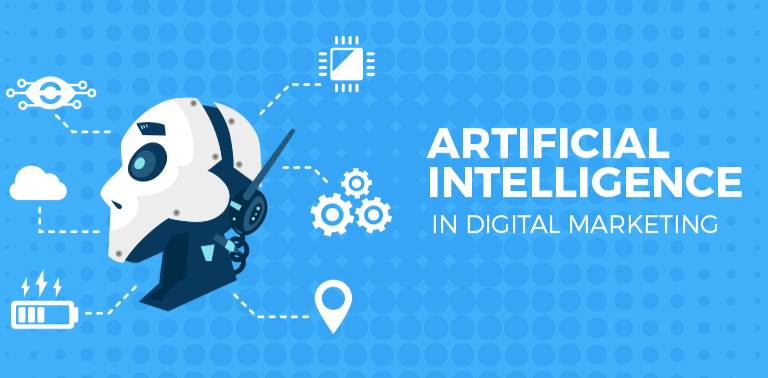Dubai – Masaader News
Artificial Intelligence has increasingly integral part of many industries including marketing, according to article to Rebecca Sentance published in econsultancy.
Here are 15 examples of AI and machine learning in the marketing industry:
1-recommendations
The practice of clustering customer behaviours to predict future behaviours began way back in 1998, with a report on ‘digital bookshelves’ by Jussi Karlgren, a Swedish computational linguist at Columbia University. In the same year, Amazon began using “collaborative filtering” to enable recommendations for millions of customers.
2. Data filtering & analysis
Marketing is becoming an increasingly data-driven discipline, and more effective use of data is the key to improving customer experience, personalisation, targeting and more.
3. Search engines
AI has had a profound impact on the way that we search, and the quality of the search experience, that we often tend to take for granted in 2019.
Google first started innovating with AI in search in 2015 with the introduction of RankBrain, its machine learning-based algorithm. Since then, many ecommerce websites (including Amazon) have followed in Google’s footsteps and incorporated AI into their search engines to make product searching smarter.
4. Visual search & image recognition
Similarly, advances in AI image recognition and analysis are making it possible to achieve amazing things with visual search.
5. Social listening & sentiment analysis
Advances in natural language processing have proven extremely useful for marketers wanting to analyse their brand presence, and the conversations around their brand, on social media and use those to target campaigns.
6. Product categorisation
Some online retailers and aggregators have discovered the extent to which machine learning can make the process of tagging and categorising products more efficient.
7. Product pricing
Demand-based price changes are nothing new – think changes to hotel room rates depending on the season – but with AI entering the equation, prices can be determined and optimised with a whole new level of precision, taking a wide variety of data into account.
8. Predictive analytics
Predictive analytics, the practice of extracting information from data sets to predict future trends, can be used to great effect in improving customer service and customer experience.
9. Audience targeting & segmentation
For marketers to reach their customers with the level of personalisation that many have come to expect, they need to target increasingly granular segments.
10. Programmatic and targeting
The introduction of artificial intelligence has made bidding on and targeting programmatic advertising vastly more efficient. Again, this is tied into predictive analytics and the ability to model things that could previously only be determined retroactively.
11. Sales forecasting
Sales forecasting is another prediction-based application of AI – this time, for sales.
Using past sales data, industry-wide comparisons and economic trends, artificial intelligence can forecast sales outcomes and help companies to inform business decisions and predict short and long-term performance.
12. Chatbots & conversational AI
Over the past few years, the chatbot star has risen dramatically and then fallen even more dramatically, as a once-hyped application of AI was found not to work as well as many had hoped.
However, a number of companies are still successfully using chatbots. At a recent Econsultancy Digital Outlook event in Singapore, marketing AI expert Deborah Kay spoke of the popularity of Singapore’s ‘Bus Uncle’ chat platform, which uses Facebook Messenger to give information on bus arrival times, and responds to natural language queries.
13. Speech recognition
Over the past several years, voice-activated devices and their potential have become the talk (ha) of the marketing industry.
14. Computer vision & augmented reality
Computer vision, much as the name implies, is a discipline that involves programming computers to ‘see’ the world around them and gain a high level of understanding from digital images and videos.
15. Copywriting
Lurking behind a good half of the articles published about AI is the implicit question: will the robots be taking all our jobs?
Most of the use cases for AI that we’ve so far covered in this article consist of artificial intelligence either augmenting a tool or performing a role which aids a human in their day-to-day work.
However, one job that AI is becoming able to perform in its own right is copywriting. At the moment, AI’s copywriting skills in the realm of marketing are largely limited to basic tasks with limited parameters like email subject lines and product descriptions.







